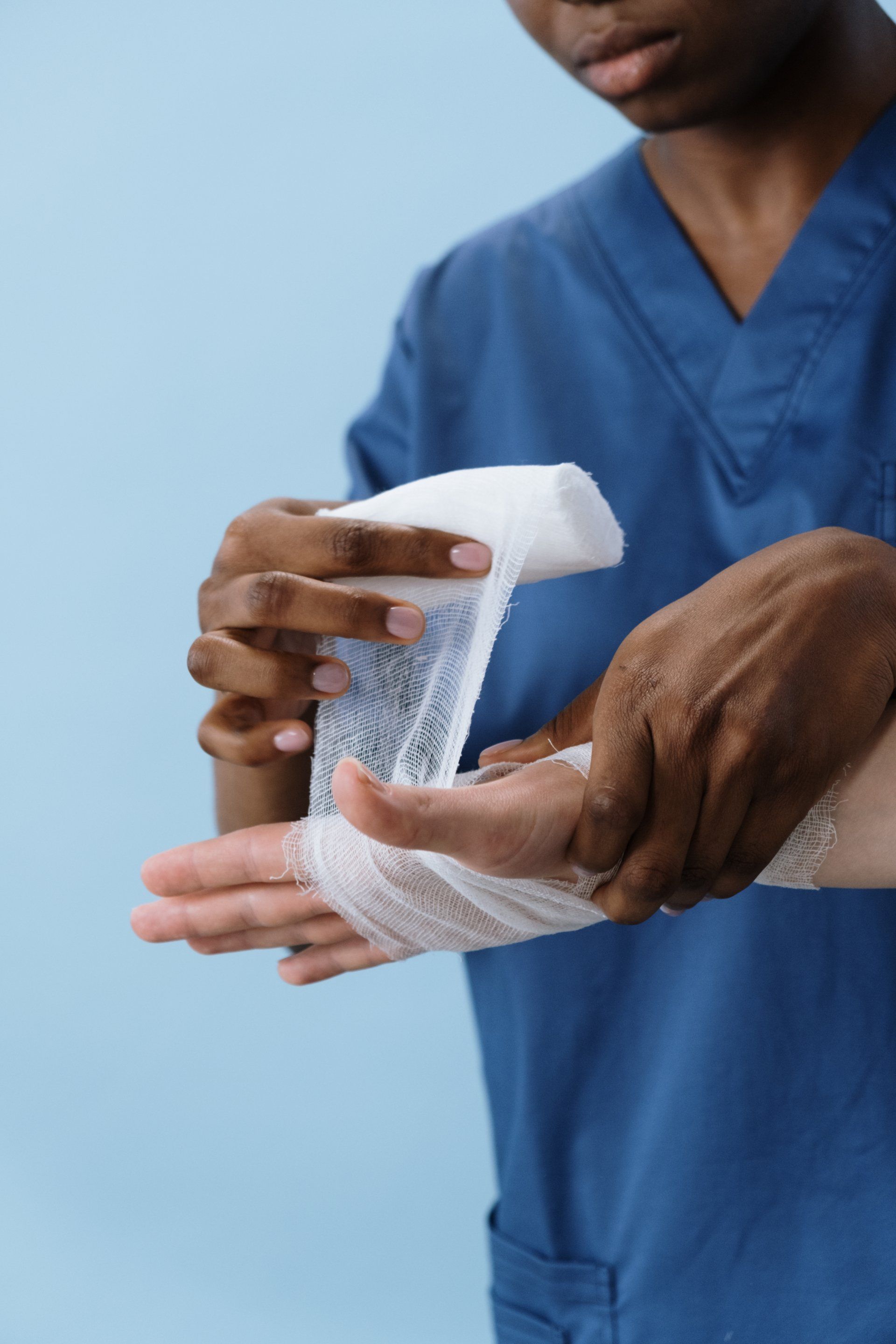Why YOU Might Need Advanced Wound Care

When should you seek Advanced Wound Care?
If you have had a wound for more than 2 weeks which hasn’t shown signs of improving, or if your wound has not fully healed in 6 weeks. Any of the wound etiologies below would also indicate the need for advance wound care.
Different wound etiologies typically treated at a wound center include:
What should you expect during the first visit?
The first visit to an advanced wound care center will entail a lengthy and involved visit, usually around 90 minutes.
A detailed patient history will be taken, some questions that will be asked are the following:
- Are you a smoker?
- Do you have diabetes?
- What is the state of your general health?
- Do you have any diagnosed heart problems?
Labs will be drawn to see your state of nutrition, as protein plays a major role in wound healing. A hemoglobin A1C will be taken to determine if you are diabetic, or how well your diabetes is controlled. Calf and ankle measurements will be taken to determine a baseline for swelling, or edema. A non-invasive arterial assessment will be done to measure blood flow to the area of the wound and to the extremities. And pictures of the wound or wounds will be taken.
Usually, a visit with a Registered Dietician will be arranged for the second visit.
What should you expect during the next visits?
After the initial visit, a typical advanced wound care appointment can range from 45-90 minutes, depending on the severity of the wound and which treatments are used.
An RN or LVN (licensed vocational nurse) will take down the dressing (the bandage) and clean the wound using a saline solution and a small amount of pressure from the saline tube. They will then gently wipe the wound and take measurements and pictures to track the wound improvement over time. The nurse will also take calf measurements to measure for any edema or swelling. If the patient does not have a lidocaine allergy, the nurse will usually apply a lidocaine cream to help numb the wound.
The physician will then come into the exam room and debride the wound. The wound is debrided with a sharp, sterile instrument that resembles a tiny ice-cream scoop, called a curette. Debridement is a type of scraping; it removes dead tissue and any bacterial build-up. Dead tissue is removed to remind the body to wake up and initiate/resume wound healing, it also removes bacteria from the wound which can lead to infection If callus has built up, the physician will remove it with a sterile blade.
At this point in the visit, the physician will review the wound care orders with the nurse, and the nurse will then apply the primary dressing and secondary dressings and any compression stockings or wraps as ordered.
Wound care is typically done 3 times per week, once at the wound care clinic and twice at home, either with the help of family or a home health agency nurse.
Sources:
https://www.cottagehealth.org/locations/goleta-valley-cottage-hospital/wound-care/
Meagan is a Registered Nurse with 17+ years working at the bedside. She has worked extensively with mothers and their newborn babies, all medical-surgical floors in the hospital and, most recently at the Ridley-Tree Center for Wound Management, one of only three centers in California and one of 21 in the nation to earn the Joint Commission Gold Seal of Approval. Meagan is a Certified Wound Specialist.
Meagan can be found on LinkedIn.
Thank you for reading Patient Education Essentials, the Write Shift RN blog.
Disclaimer: This article was written as a guest post for Write Shift RN LLC's blog. The information in it may not be wholly fact-checked or edited, allowing the reader to see the writer's work and skills firsthand.
This information is not intended as medical advice. It is for informational and educational purposes only. Always talk to your doctor or other qualified healthcare providers about any questions or concerns you may have regarding medical conditions.











